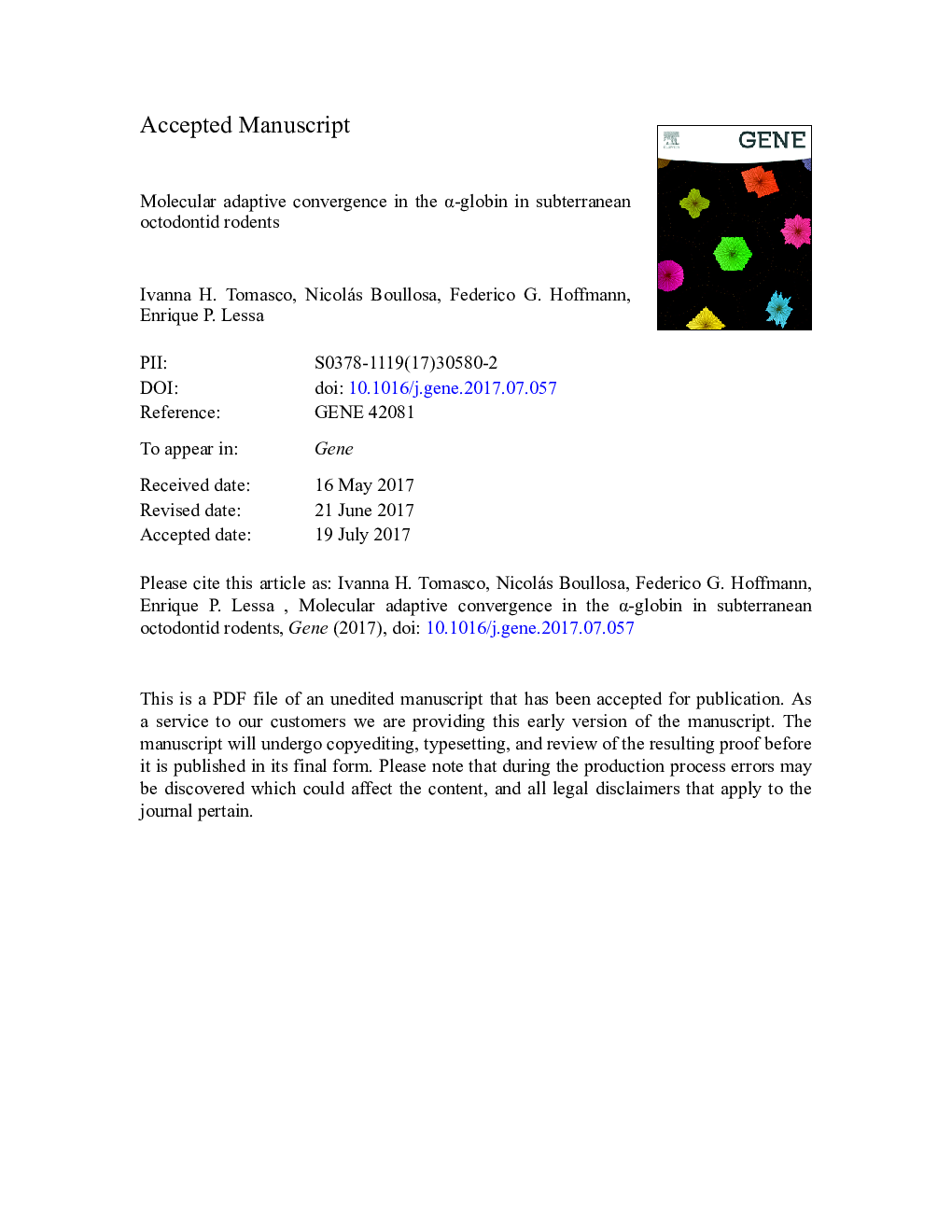| Article ID | Journal | Published Year | Pages | File Type |
|---|---|---|---|---|
| 5589191 | Gene | 2017 | 21 Pages |
Abstract
Tuco-tucos (Ctenomys) and related coruros (Spalacopus) are South American subterranean rodents. An energetically demanding lifestyle within the hypoxic/hypercapnic underground atmosphere may change the selective regime on genes involved in O2 transport in blood. In addition, some species of tuco-tucos may be found at high altitude, thus facing additional reductions in changes O2 availabily. We examined sequence variation in the alpha globin subunit gene of hemoglobine in these lineages, within a robust phylogenetic context. Using different approaches (classical and Bayesian maximum likelihood (PAML/Datamonkey) and alternatives methods (TreeSAAP)) we found at least 2 sites with evidence of positive selection in the basal branch of Octodontidae, but not in tuco-tucos. These results suggest some adaptive changes associated to fossoriality, but not strictly to life underground.
Keywords
PAMLTHRASNdNTPRELLEUALAASPMgCl2MEMEAspargineCaviomorphsSDSFossorialityNaClDNAAspartic acidalaninedeoxyribonucleic acidglutamic acidOxygenSERthreonineMolecular evolutiondeoxyribonucleoside triphosphateCarbon dioxidesodium dodecyl sulfateSodium chlorideSerineLeucinemyaHémoglobineCO2Magnesium chlorideGluGlyGlycine
Related Topics
Life Sciences
Biochemistry, Genetics and Molecular Biology
Genetics
Authors
Ivanna H. Tomasco, Nicolás Boullosa, Federico G. Hoffmann, Enrique P. Lessa,
